Bar Council of Ukraine emphasizes the legal uncertainty of the laws on the submission of e-declarations by members of disciplinary bodies of the Bar
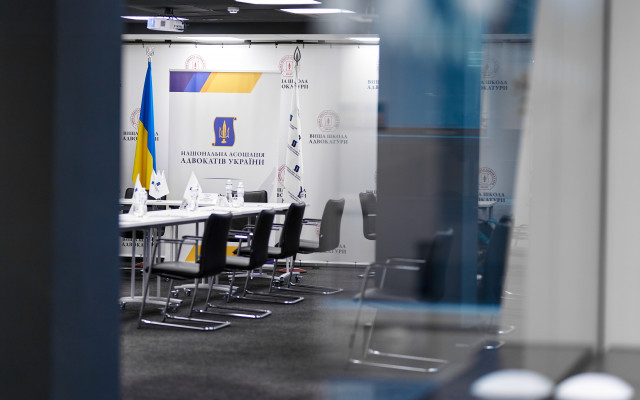
Bar Council of Ukraine will address the inquiry to the Verkhovna Rada, President of Ukraine, The Prosecutor General, and the Supreme Court regarding the actions of individuals of the National Agency for Prevention of Corruption (hereinafter – NAPS), which lead to the oppression of the interests of the advocacy and are aimed at nationalizing the attorneys` self-government.
The pretext of such inquiry was the e-mail from the NAPS "On the performance of public law functions" concerning the range of entities covered by the Law of Ukraine "On Prevention of Corruption" signed by the Head of the Legal Department Yaroslav Lyubchenko, which was sent to the Higher Qualification and Disciplinary Commission of the Bar and Heads of the Qualification and Disciplinary Commission of the Bar in the regions dated March 22, 2021. Inna Mokina, the Head of the Kherson region Bar Council; Lidia Melkonyan, a member of the disciplinary chamber of the Disciplinary Commission of the Bar in Kharkiv region, and the Head of Higher Qualification and Disciplinary Commission of the Bar, Serhiy Vilkov, addressed the BCU because of such an e-mail.
«On March 22, 2021, the Higher Qualification and Disciplinary Commission of the Bar received a letter from the NAPC Legal Department inviting the Head and members of the Commission, as well as members of disciplinary chambers to submit electronic declarations» - Lydia Izovitova has explained.
She stressed that this letter is unreasonable and contradicts the official explanation of the NAPC on the range of persons subject to the e-declaration received at the request of the UNBA in 2020.
As in October 2019 the Law of Ukraine "On Prevention of Corruption" was amended and expanded the range of subjects of e-declaration, the UNBA sent a letter to the Head of the NAPC to clarify the legal uncertainty of subparagraph "c", paragraph 2 of part 1 of Article 3 of this law. The UNBA asked whether the Head and members of the Higher Qualification and Disciplinary Commission of the Bar, as well as the Head, Deputy Head and members of the Commission, are subjects to the Law “On Prevention of Corruption”.
After analyzing the provisions of the Constitution of Ukraine, the Law of Ukraine "On Prevention of Corruption", the Law of Ukraine "On Advocacy", the decision of the Constitutional Court of Ukraine in case №3-r/2019, NAPC clarified that including the Head and members of the Commission to the entities defined in subparagraph "c" of paragraph 2 of the first part of Article 3 of the law may contradict the principle of legal certainty, which is part of the principle of the rule of law.
"Legal uncertainty eliminates the responsibility for members of the Commission and its regional chapters for failure to submit declarations since the NAPC confirmed this uncertainty and referred to the decision of the Constitutional Court in this matter. There is nothing to talk about anymore", - the UNBA Head emphasized.
BCU rapporteur on the issue Lyubov Horoshchenko also stressed that «there is no stronger argument than the available explanation of the NAPC». BCU member Hanna Lazarchuk also stressed that the current explanation is sufficient for attorneys, and suggested to NAPC to withdraw the letter, which contradicts the previous position of the agency on the same issue, altogether.
The explanation provided to NAPC in 2020, which was received by attorneys individually in response to their requests, is a tool to protect members of the District Administrative Court from possible problems for failure to file declarations this year. At the same time, members of the Commission may submit declarations at their discretion, taking individual responsibility for this, including for failure to submit declarations in 2019.
During the BCU meeting, the draft law under consideration by the Verkhovna Rada was discussed, which proposes to eliminate the mentioned legal uncertainty of the provision of the law «On Prevention of Corruption».
«Both the explanatory note and the conclusions of the Verkhovna Rada Committees state that there are indeed persons in the Law “On Prevention of Corruption”, such as international experts, who participate in various commissions, and they should not submit electronic declarations. It is also stated that attorneys and members of attorneys` self-government bodies should not submit e-declarations to eliminate legal uncertainty. That is, the parliament wants to resolve this uncertainty in such a way as to legislate that members of bar self-government bodies, including members of disciplinary chambers, should not submit electronic declarations», - Lydia Izovitova stressed.
Also,UNBA\BCU President pointed out that UNBA is a non-governmental body, and therefore the attempt to oblige members of disciplinary commissions to submit e-declarations is an attempt to nationalize the attorneys` self-government.
"We do not have disciplinary commissions - we have the Higher Qualification and Disciplinary Commission of the Bar, where there is a separate disciplinary chamber. There are no representatives of the authorities in this disciplinary chamber, as was the case when disciplinary commissions were legal entities under public law and their provisions were approved by the President of Ukraine. We do not have competition commissions, because we do not select people who pass the qualifying exams and go on the way to our profession on the principle of one of the top 10, we do not have a competition", - said Lydia Izovitova.
BCU also decided to address to the head of the NAPS about the existence of two legal documents in the conditions of legal uncertainty – the explanation and the letter of the legal department manager, whose status is unclear, and which contradicts the official explanation dated 2020. As the BCU does not have the authority to provide clarifications on anti-corruption legislation, together with a copy of this letter to the Commission, a recommendation on mandatory declaration will be sent to NAPS.
"We do not have the discretion to explain the law "On Prevention of Corruption", but we see that the signature of various persons is an explanation and there is a letter – the letter is not an explanation on the application of the law. We must discuss it and make the corresponding appeal to the parliament We do not have the discretion to explain the law "On Prevention of Corruption", but we see that the signature of various persons is an explanation and there is a letter - this is not an explanation - on the application of the law. We have to discuss this and make a corresponding appeal to the parliament and other authorities about the fact that there is a certain body that is responsible for certain issues and its activities today lead to the oppression of our interests as an independent non-governmental institution", - Lydia Izovitova explained.
Doubts about the status of the letter and the authority of the person who signed it were caught by BCU member Serhiy Osyka, as well as Chair of Kyiv City Qualification and Disciplinary Commission of the Bar Ihor Orlov, and a member of QDCB of Kyiv City Vadym Rykov.
During the discussion, BCU members stressed that the bar self-government bodies, in particular, the Commission and the disciplinary chambers within it, are not disciplinary bodies within the meaning of anti-corruption legislation.
Thus, the Chair of Odessa Qualification and Disciplinary Commission of the Bar Nataliia Rudnitska pointed on all the differences of qualification and disciplinary bodies of the bar from the status, powers, and procedure for appointing members of disciplinary commissions who are obliged to submit e-declarations. These are competition and disciplinary commissions that consider complaints against civil servants, work as part of state bodies, are funded by the state budget, and implement their decisions by regulations of the heads of these bodies.
"Disciplinary chambers of the Commission, members of these chambers are not subject to declaration within the meaning of the law. If we return to the Constitution, it guarantees the independence of the bar, which operates as a self-organized institution through attorneys` self-government bodies. And such bodies include the Commission, established to determine the professionalism of individuals and to address issues of disciplinary liability of attorneys. The members of the Commission are elected by the conferences of attorneys from among the current attorneys" , - Natalia Rudnytska stressed, adding as an argument and the procedure for financing the activities of the Commission and the lack of employment.
"If we compare the purpose of the commission, the procedure for establishing the commission, the sources of funding, the procedure for disciplinary action, corruption risks, as these are subordinate civil servants, we will see that the legislator set this point for representatives of such commissions. If we take our law, we are not civil servants, we are not entrusted with the functions of the state - we are not subject to declaration under this law", - said the representative of the Odessa region.
Popular news
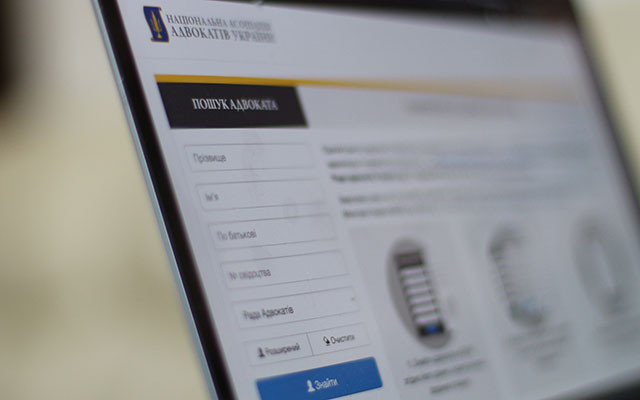
URAU
Access to advocate contacts in URAU has been restored
The Bar Council of Ukraine has opened up public access to data from the Unified Register of Advocates of Ukraine, which was closed at the start of the full-scale invasion in 2022. The decision was made at a meeting on December 12–13.
Self-government
Members of the QDCB are not required to submit declarations - BCU
Bar Council of Ukraine examined the legal status of members of bar self-government bodies and found that they are not required to submit declarations of persons authorized to perform functions of state or local self-government.
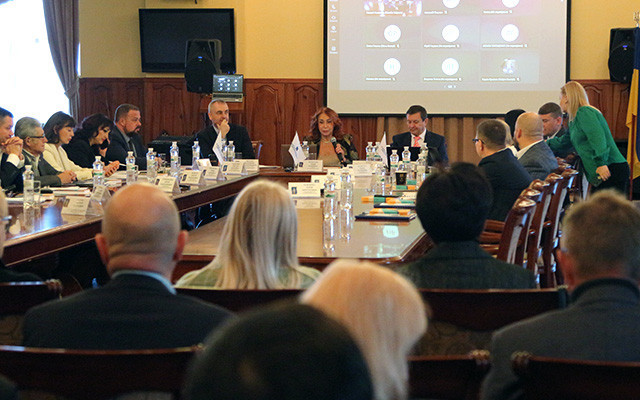
Self-government
BCU has identified 12 areas for implementing the Roadmap for advocacy
During its meeting on December 12, the Bar Council of Ukraine considered the Roadmap on the Rule of Law, approved by Order of the Cabinet of Ministers of Ukraine No. 475-r dated May 14, 2025. The document provides for the development and adoption of a draft law on improving the legal regulation of advocacy by the fourth quarter of 2026.
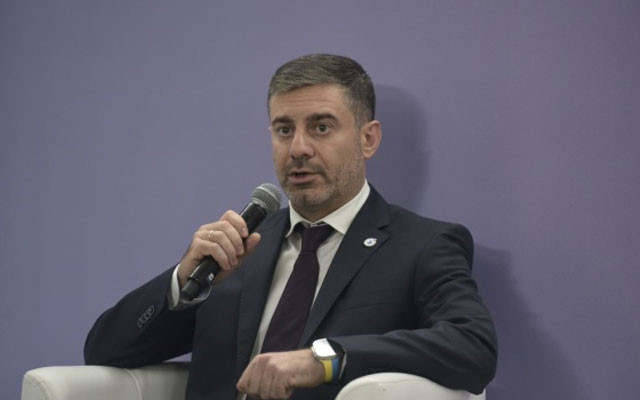
Guarantees of the practice of law
The Ombudsman acknowledged the problem of violation of the human right to legal aid in the TCC
The Verkhovna Rada Commissioner for human rights Dmytro Lubinets confirmed the existence of a problem with ensuring the constitutional right to professional legal assistance in territorial recruitment and social support centers.

Guarantees of the practice of law
The agreement on the provision of legal assistance is not public – BCU
Bar Council of Ukraine in its decision No. 111 dated October 18, 2025, responded to questions regarding the possibility of concluding legal assistance agreements by accepting a public offer, using an electronic form of the agreement, and posting information about legal assistance on websites.
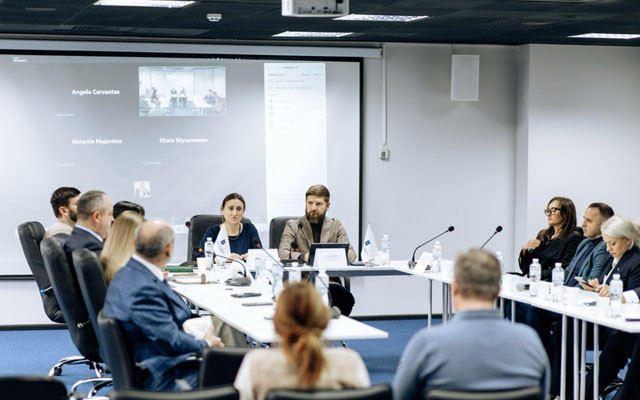
Discussion
Why preventive measures have turned into preventive punishment in Ukraine: round table discussion
The European approach, enshrined in the CPC, provides for detention as an exceptional preventive measure: courts must prove the impossibility of milder alternatives and carefully assess the risks. In practice, however, it is increasingly being applied almost automatically, eroding standards of freedom.
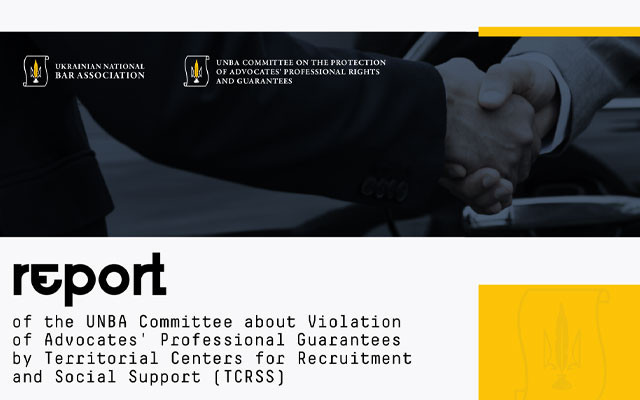
Guarantees of the practice of law
The UNBA presented a report on violations of advocates' rights in the TCC
The Committee for the protection of advocate's rights and guarantees of legal practice of the UNBA has prepared a consolidated report on violations of advocate's professional rights and guarantees of legal practice by territorial recruitment and social support centers for the period from 2022 to the first half of 2025.
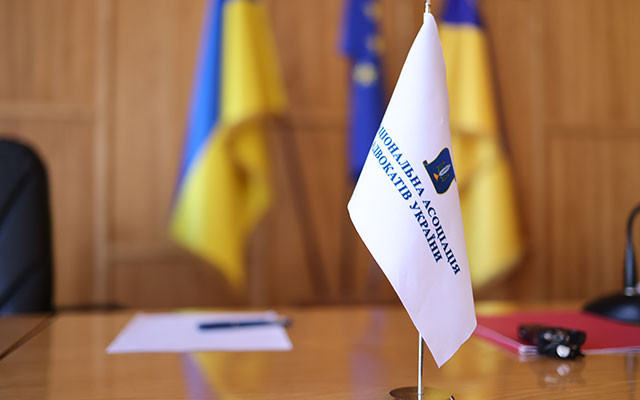
Self-government
Statement by the UNBA Committee regarding manipulative journalistic material
Statement by the UNBA Committee on information policy and interaction with the media regarding manipulative journalistic material aimed at discrediting the advocacy institution.
Publications

Censor.net Protecting advocates – protecting justice: addressing concerns about the new law

Ihor Kolesnykov A BRIEF SUMMARY REGARDING THE APPLICATION OF THE ORDER ON EXTENDED CONFISCATION IN LATVIA REGARDING FINANCIAL ASSETS OF…

Valentyn Gvozdiy WORKING IN A WAR ZONE

Lydia Izovitova Formula of perfection

Sergiy Vylkov Our judicial system is so built that courts do not trust advocates

Iryna Vasylyk Advocacy in the proclamation of Independence of Ukraine

Oleksandr DULSKY When we cross the border of the Supreme Anti-Corruption Court, we get into another department of the National Anti-Corruption…

Vadym Krasnyk The UNBA will work, and all obstacles and restrictions are only temporary inconveniences
